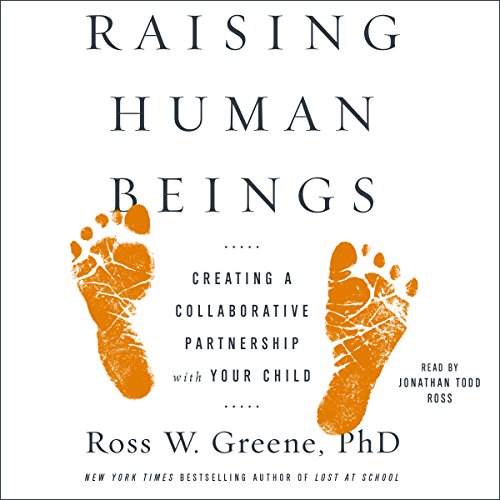
Raising Human Beings
Creating a Collaborative Partnership with Your Child
カートのアイテムが多すぎます
カートに追加できませんでした。
ウィッシュリストに追加できませんでした。
ほしい物リストの削除に失敗しました。
ポッドキャストのフォローに失敗しました
ポッドキャストのフォロー解除に失敗しました
聴き放題対象外タイトルです。Audibleプレミアムプラン登録で、非会員価格の30%OFFで購入できます。
-
ナレーター:
-
Jonathan Todd Ross
-
著者:
-
Ross W. Greene
このコンテンツについて
In Raising Human Beings, the renowned child psychologist and New York Times best-selling author of Lost at School and The Explosive Child explains how to cultivate a better parent-child relationship while also nurturing empathy, honesty, resilience, and independence.
Parents have an important task: figure out who their child is - his or her skills, preferences, beliefs, values, personality traits, goals, and direction - get comfortable with it, and then help him or her pursue and live a life that is congruent with it. But parents also want to have influence. They want their kid to be independent, but not if he or she is going to make bad choices. They don't want to be harsh and rigid, but nor do they want a noncompliant, disrespectful kid. They want to avoid being too pushy and overbearing, but not if an unmotivated, apathetic kid is what they have to show for it. They want to have a good relationship with their kids, but not if that means being a pushover. They don't want to scream, but they do want to be heard. Good parenting is about striking the balance between a child's characteristics and a parent's desire to have influence.
Now Dr. Ross Greene offers a detailed and practical guide for raising kids in a way that enhances relationships, improves communication, and helps kids learn how to resolve disagreements without conflict. Through his well-known model of solving problems collaboratively, parents can forgo time-out and sticker charts; stop badgering, berating, threatening, and punishing; allow their kids to feel heard and validated; and have influence. From homework to hygiene, curfews to screen time, Raising Human Beings arms parents with the tools they need to raise kids in ways that are nonpunitive and nonadversarial and that brings out the best in both parent and child.
©2016 Ross Greene, PhD (P)2016 Simon & Schuster


